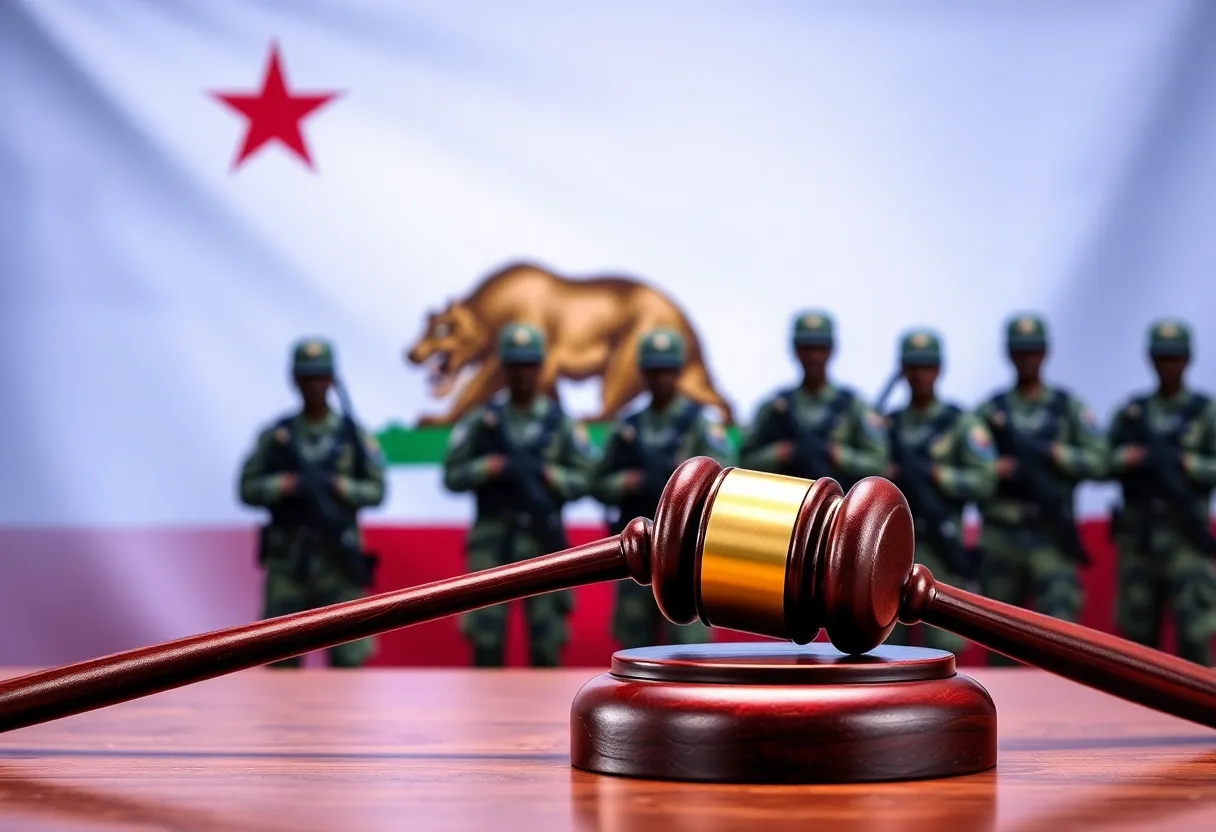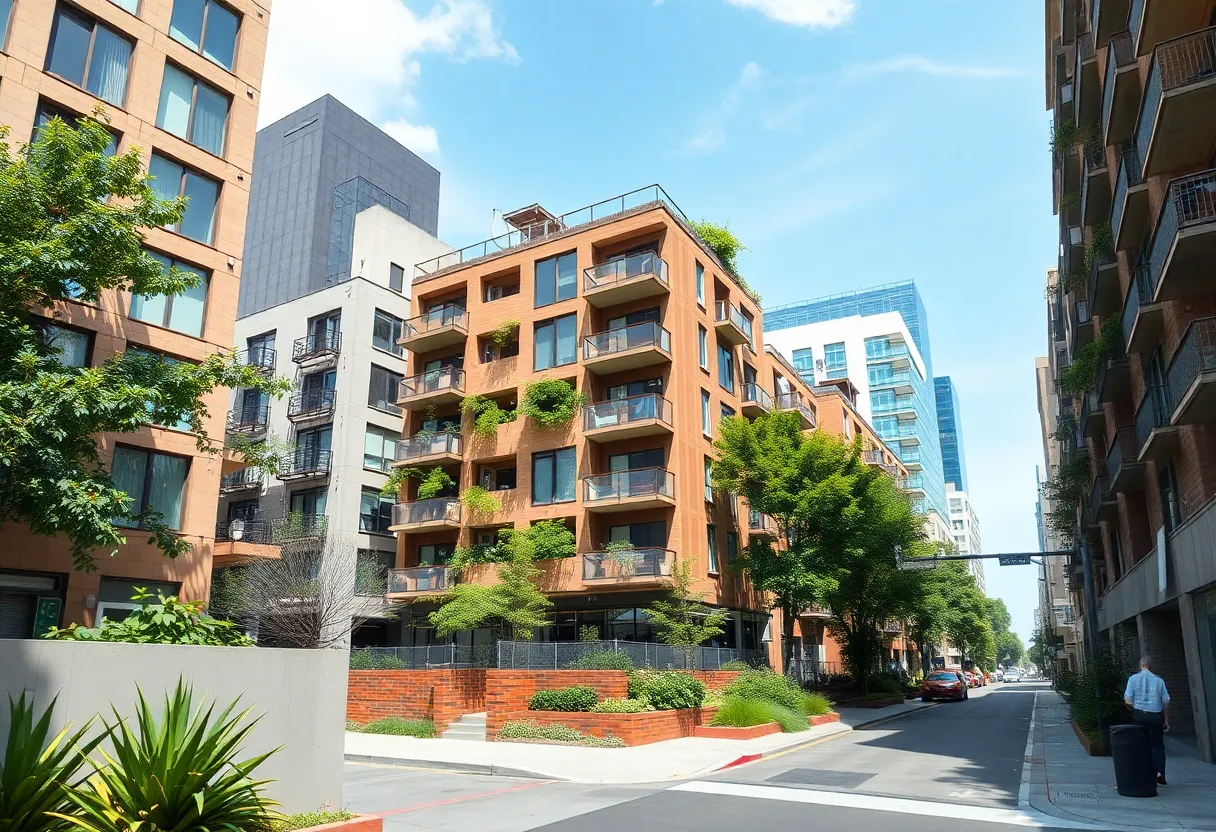News Summary
A federal judge has halted the Trump administration’s deployment of National Guard troops for civilian law enforcement in California. The ruling, made by Senior District Judge Charles R. Breyer, emphasizes the illegality of military involvement in immigration arrests, addressing concerns over civil liberties and public safety. Following the decision, the Department of Justice plans to appeal. The ruling signals a significant legal victory for California and raises important questions about the federal government’s use of military forces in domestic law enforcement.
San Francisco – A federal judge has effectively blocked the Trump administration from deploying National Guard troops for civilian law enforcement in California. Senior District Judge Charles R. Breyer ruled that the use of National Guard troops in this capacity was illegal, aiming to halt the military’s involvement in immigration arrests and related activities. This decision signals a significant win for California and raises questions about the use of military forces across the country under similar circumstances.
The ruling, set to take effect on September 12, cautions against creating a “national police force” operating under the authority of the President, amid growing concerns surrounding the military’s role in domestic law enforcement. Judge Breyer articulated that the increasing military presence in such operations poses potential threats to civil liberties and public safety.
This ruling follows a trial that highlighted the controversial deployment of troops during immigration enforcement protests, particularly at MacArthur Park, where approximately 300 soldiers are currently stationed in Los Angeles. The National Guard was initially summoned to manage the situation more effectively amidst rising tensions over immigration issues.
The Department of Justice has signaled its intention to immediately appeal Judge Breyer’s decision, which would result in a temporary stay until the U.S. 9th Circuit Court of Appeals can conduct a review. This appeal process indicates that the administration is determined to secure its ability to use military personnel for such law enforcement activities in future instances.
Legal experts are divided over the implications of this ruling. Some view the decision as a much-needed clarification of the laws and concerns surrounding military involvement in civilian affairs, while others express unease that an overturning of the ruling could provide the President with expansive powers to deploy military troops domestically. Judge Breyer firmly referenced the Posse Comitatus Act, which restricts military involvement in domestic law enforcement, as a vital component of his ruling.
In his written verdict, Judge Breyer condemned the administration for its lack of meaningful coordination with state and local officials and criticized the military’s role in functions that diverge from their established training. He drew attention to the potential ramifications that a more militarized approach to law enforcement could have on American democracy and civil rights.
The concern over the militarization of law enforcement has gained heightened scrutiny, particularly as President Trump has indicated plans to deploy troops to additional cities, including those led by Democratic mayors such as Chicago and New York. This has prompted considerable alarm regarding the overall trajectory of military involvement in civilian law enforcement across the nation.
California Governor Gavin Newsom expressed support for the ruling, stressing that it upholds the state’s sovereignty and protects its residents from overreach by federal authorities. However, as the legal battle unfolds, mixed reactions have emerged, underscoring complexities in delineating the boundaries between state and federal powers in matters of law enforcement.
The Trump administration’s legal defense has maintained that the National Guard troops were primarily acting to ensure the safety of federal officers and not enforcing laws. They have cited “constitutional exceptions” to the Posse Comitatus Act as part of their justification for the deployment. Nevertheless, the specific circumstances surrounding the National Guard’s activation in California were deemed unprecedented due to the lack of approval from the state governor.
As legal proceedings continue in response to Judge Breyer’s ruling, the decision could set a significant precedent regarding military involvement in domestic law enforcement and the balance of power between federal and state authorities, potentially shaping the future landscape of civil rights and law enforcement in the United States.
Deeper Dive: News & Info About This Topic
HERE Resources
Federal Immigration Raids Intensify in Sanctuary Cities
Tensions Rise in Los Angeles Amid Largest Deportation Initiative
Trump Deploys National Guard in Washington D.C. Amid Crime Concerns
Investigation into Fatal Explosion Involving Missing Grenade
Los Angeles Immigration Policy Transformations Amid Protests
Pentagon Withdraws Marines from Los Angeles
Rise in Immigration Raids Sparks Fear in Southern California
Federal Operation at MacArthur Park Raises Concerns
California Faces Federal Showdown Over Policies
California Federal Immigration Raids Result in Arrests and Death
Additional Resources
- Los Angeles Times
- Military.com
- ABC7
- Daily Journal
- ABC7 News
- Wikipedia: Posse Comitatus Act
- Google Search: Trump National Guard immigration protests
- Google Scholar: Trump deployment National Guard
- Encyclopedia Britannica: National Guard
- Google News: Trump California National Guard

Author: STAFF HERE HOLLYWOOD
The Hollywood Staff Writer represents the experienced team at HEREHollywood.com, your go-to source for actionable local news and information in Hollywood, Los Angeles County, and beyond. Specializing in "news you can use," we cover essential topics like product reviews for personal and business needs, local business directories, politics, real estate trends, neighborhood insights, and state news affecting the area—with deep expertise drawn from years of dedicated reporting and strong community input, including local press releases and business updates. We deliver top reporting on high-value events such as the Hollywood Bowl summer concerts, the Hollywood Christmas Parade, film premieres at TCL Chinese Theatre, and festivals at the Magic Castle. Our coverage extends to key organizations like the Hollywood Chamber of Commerce and Visit Hollywood, plus leading businesses in entertainment, dining, and tourism that define the local economy. As part of the broader HERE network, including HERELosAngeles.com, HEREBeverlyHills.com, HEREAnaheim.com, and HEREHuntingtonBeach.com, we provide comprehensive, credible insights into Southern California's dynamic landscape.





